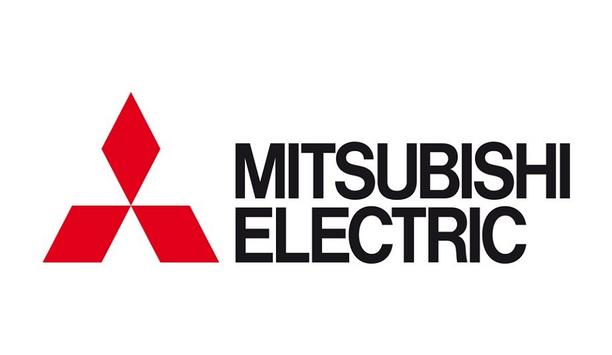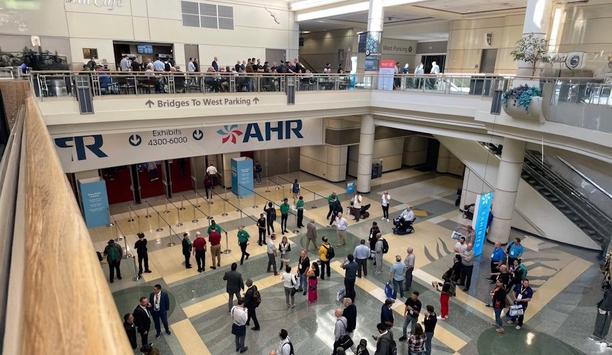Over the last year, we’ve become all too familiar with the risk posed by a deadly airborne virus, but, as we move out of lockdown, there are other airborne hazards we urgently need to fight.
However, while advice and guidance are abundant in the use of heating, ventilation, and air conditioning systems in combating the spread of COVID-19, there has been very little said of the risk of using HVAC systems after a prolonged period of inactivity.
As those familiar with HVAC systems know, air conditioning and ventilation systems are designed to be used regularly, if not constantly.
Enclosed and moist environments
As systems convey air and/or cool it, systems build up moisture and, having been inactive for many months, if not for a whole year, these humid, enclosed, and moist environments will have become a breeding ground for bacteria, mold, and fungus.
Mould or mildew can grow in air ducts, filters, or vents as well as in drip pans and coils
Mould or mildew can grow in air ducts, filters, or vents as well as in drip pans and coils. It spreads through the production of microscopic spores which float through the air and deposit on surfaces.
In the right environments, these spores can form mold colonies, where they can then produce more spores that can be spread further. Worse, these spores can survive and linger in an atmosphere for long periods, and some molds can be deadly.
Exposure to mold
Now imagine that a contaminated HVAC system, which has been inactive for weeks, months, or even a whole year, is switched back on: Immediately, a current of air carries the spores through the ducting before projecting them out across every inhabited space, ready for workers, shoppers or visitors who are venturing out after lockdown to touch, inhale, eat or drink.
As well as smelling musty and unpleasant, mold exposure can cause cold or allergy-like symptoms such as a stuffy nose, cough, or sore throat as well as headaches, nausea, skin and respiratory diseases. It can also be particularly dangerous to people who are immunocompromised or who have conditions such as asthma.
Routine maintenance
It sounds disgusting, but the risk is very much real. Unfortunately, there has been very little advice or guidance from the UK government to make property managers or users aware of this issue and so many will have neglected to protect themselves and their workers or visitors.
Mould has always been able to grow inside HVAC systems, and this is why owners are obliged to have them regularly serviced. But unless that routine maintenance has gone ahead as planned throughout the lockdowns, and unless their systems have been inspected and disinfected again before opening, COVID-19 will be just one of many airborne health hazards people will face this summer.
No clear warnings
Government guidance encourages the use of various HVAC systems as part of its COVID-secure strategies Of course, the UK is not the only country to have imposed lockdown restrictions, and, over in America, their health authority, the Centres for Disease Control and Prevention (CDC) has published warnings around this.
But, here in the UK, there have been no such messages: Government guidance encourages the use of various HVAC systems as part of its COVID-secure strategies, but it makes no clear warnings about the particular risk of using these after a period of prolonged inactivity.
Mitigated risks
I suspect that while larger workplaces with dedicated property managers and close connections to professionals such as ourselves will be more likely to have mitigated these risks, countless other organizations will not: I’m particularly concerned about small offices, hotels, restaurants, pubs, holiday cottages, and shops which may have systems unchecked for years and which would have had their hands full with other problems that were more pressing than maintaining an HVAC systems no-one is using.
Cleaning and disinfecting HVAC
Enhanced cleaning in other respects could also have made matters worse; if, for example, a carpet was shampooed at the start of lockdown and the HVAC system was turned off, a property manager will have inadvertently created the perfect environment for mold to thrive.
Fortunately, HVAC systems can be disinfected and cleaned to make them safe again, but with so little awareness, many system owners will not be taking these steps.
Action against mold
However, while there may not be specific guidance in relation to the risk of mold in HVAC systems after lockdown, there are still laws in place which oblige property managers to take action. These include the Health & Safety at Work Act, The Workplace Health, Safety & Welfare Regulations, Occupiers Liability Act, and the Control of Substances Hazardous to Health Regulations. As a result, employers or property managers may be liable for illness or harm which may occur from the use of contaminated systems.
As we approach the end of the lockdown restrictions, I would urge all HVAC engineers, property managers, and property maintenance professionals to immediately reach out to clients and warn them of this danger, because the last thing we need is another health crisis.


















